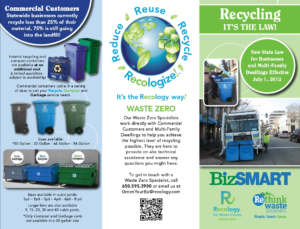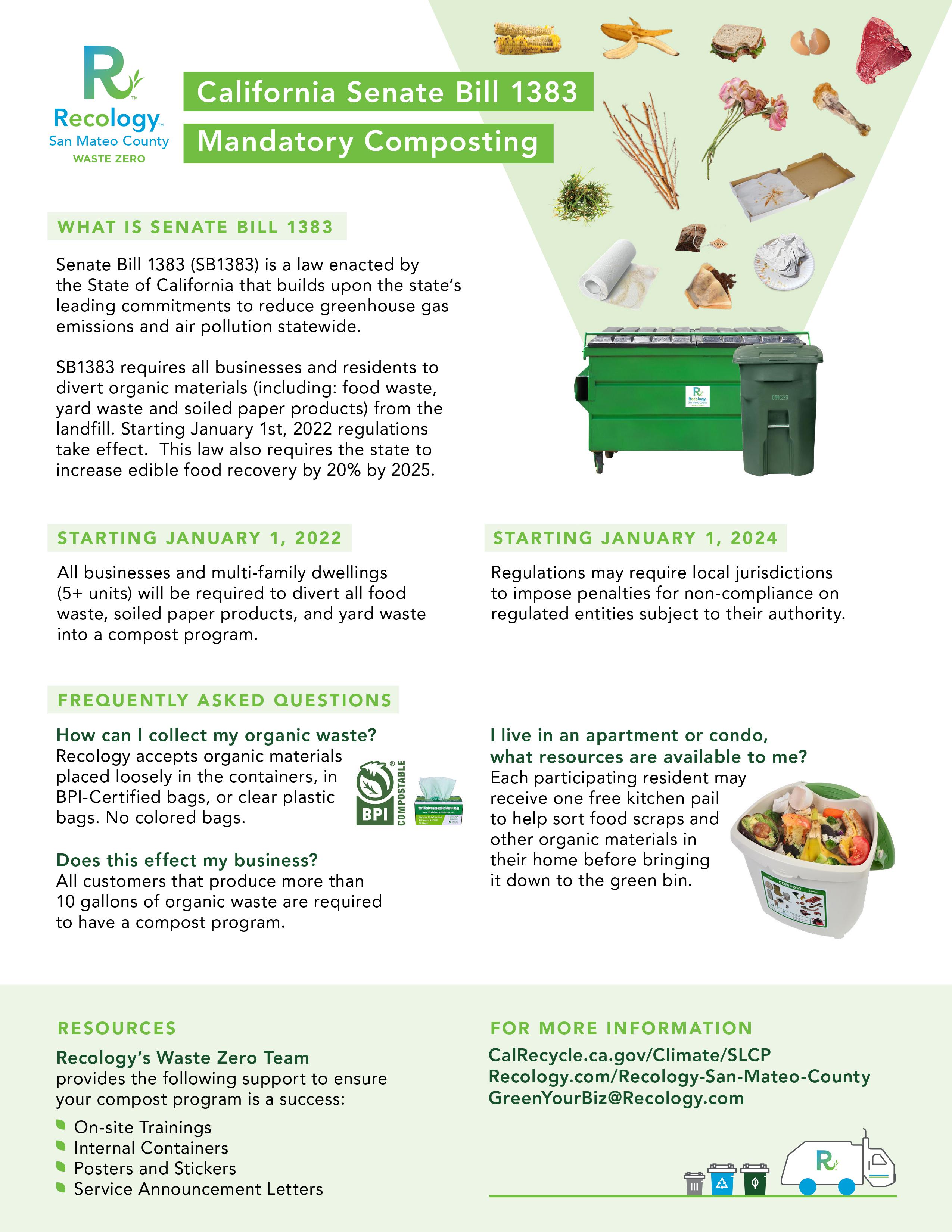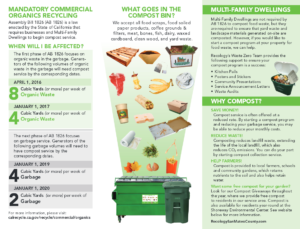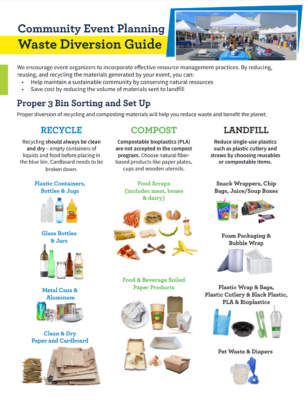At Recology, we work closely with city and state governments to ensure that our shared sustainability goals are made possible. Below are the most impactful pieces of recycling legislation pursuant to those goals – SB 1383, AB 341, AB 1826, AB 2176, and AB 827.
SB 1383
|
SB 1383 builds upon California’s leading commitments to reduce greenhouse gas emissions and air pollution statewide. SB1383 will require all businesses and residents to divert organic materials (including food waste, yard waste, and soiled paper products) from the landfill. The law expands upon the goals of AB 341 and AB 1826, described below. January 1, 2022 – CalRecycle’s regulations to meet the organic waste reduction targets take effect. January 1, 2024 – Jurisdictions may impose penalties for non-compliance on regulated entities subject to their authority. January 1, 2025 – By this date, the state must achieve a 75% reduction in the level of statewide disposal of organic waste from the 2014 level. In addition, not less than 20% of currently disposed of edible food must be recovered for human consumption. For more information on SB 1383 edible food recovery requirements, visit San Mateo County’s Office of Sustainability webpage. You can view Recology’s webpage dedicated to the legislation here. To learn more about Senate Bill 1383, visit the CalRecycle SB 1383 Education and Outreach Resources page. For more information pertaining to your respective interests, please review our commercial business brochure and property management brochure. |
|
AB 341 – Commercial Recycling
|
California Assembly Bill 341 (AB 341) mandates recycling for all businesses that generate more than 4 cubic yards* of solid waste per week, and multifamily dwellings of 5 units or more. AB 341 is designed to reduce GHG emissions in the state by 5 million metric tons of carbon dioxide (CO2). In San Mateo County, businesses and property owners are able to subscribe to composting and recycling services to comply. Property owners of a commercial business or multifamily residential dwelling may also require tenants to source separate their recyclable materials to aid in compliance. *San Carlos businesses and multi-family dwellings with two (2) cubic yards or more of garbage per week must comply with the City’s mandatory commercial recycling and organics ordinance. |
 Download our AB 341 Guide Download our AB 341 Guide |
|
AB 1826 – Commercial Organics
AB 2176 – Large Venues and Large Events: California Recycling Law
|
Organizers of events, both large and small, are eager to reduce the amount of waste generated by these activities and to reuse or recycle leftover items whenever possible. As further motivation, California State Law now requires organizers of Large Venues and Events to develop a Waste Reduction Plan and to report the results of that Plan to a designated local agency. Does your event require a recycling plan?Under the terms of AB 2176, California State Law now requires that you plan and report on waste-reduction efforts if your Event averages more than 2,000 participants (including all attendees, staff, and vendors) per day, and if the event falls into either of the following categories:
For additional information and resources, please visit CalRecycle. |
|
AB 827 – Solid Waste: Commercial and Organic Waste: Recycling Bins
AB 827 is intended to educate and involve consumers in achieving the state’s recycling goals by requiring businesses subject to AB 341 and/or AB 1826 to make recycling and/or organic recycling bins available to customers.
Which businesses are subject to AB 827?
AB 827 (McCarty, 2019) amended the existing statute, namely the Mandatory Commercial Recycling (MCR) and Mandatory Commercial Recycling Organics (MORe) laws. Businesses subject to AB 827 include those businesses that are subject to MCR requirements and/or MORe requirements and provide customers access to the business.
What are the requirements for businesses subject to AB 827?
AB 827 is intended to educate and involve consumers in achieving the state’s recycling goals by requiring businesses subject to AB 341 and/or AB 1826 to make recycling and/or organic recycling bins available to customers.
On or before July 1, 2020, businesses are required to: Provide customers with solid waste recycling and/or organics collection containers to collect material generated from products purchased on the premises. The containers must be clearly marked with labeling indicating which materials are appropriate for each container and accessible to customers.
For further information and resources, please visit CalRecycle.


